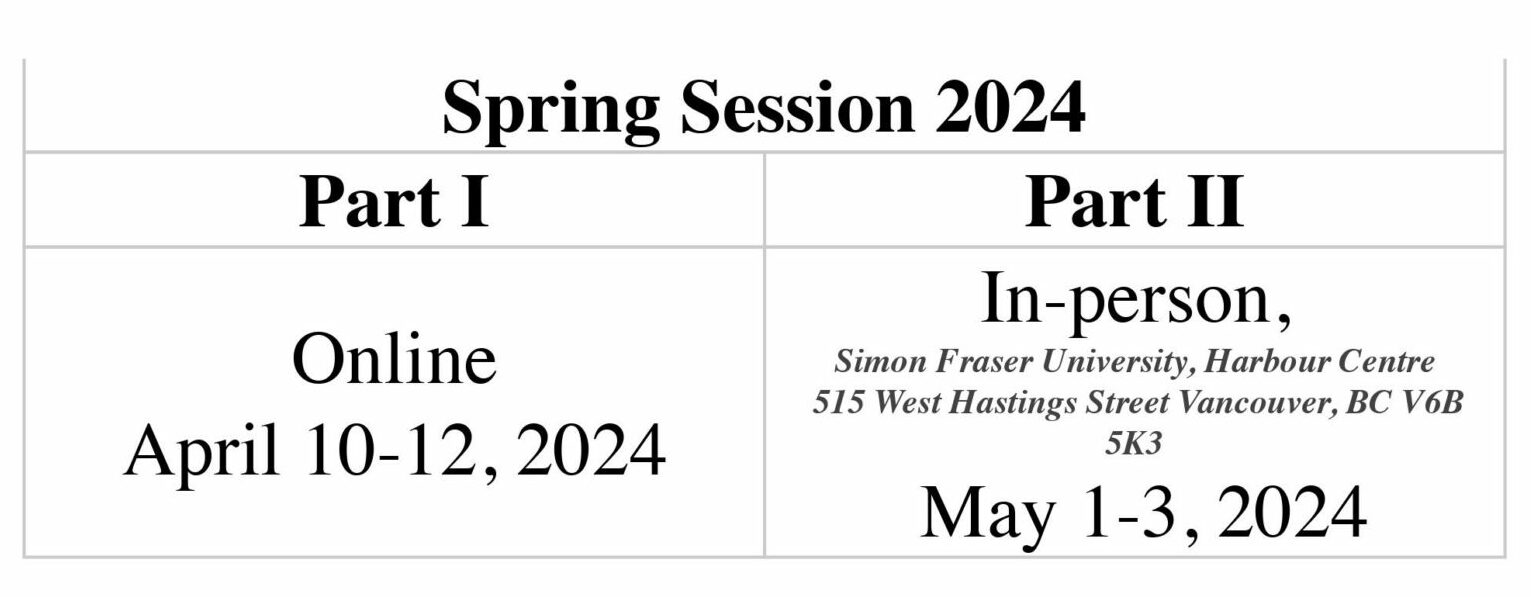Mediation Training Program
Whether you are interested in a career as a professional Mediator or acquiring dispute resolution skills to assist or advance your existing career, the National Introductory Mediation Course (NIMC) is ideal for helping you achieve your goals.
This two-part course is strategically designed for learners to integrate Part I into their work & personal life. It allows them time to practice, reflect and ask questions as they come back to complete Part II. In other words, real learning in the real world!
 Why should you take the Mediation Training Program?
Why should you take the Mediation Training Program?
ADVANCE YOUR CAREER
For those who already have 40 hours of specialized mediation and related training from a recognized program or institution, successful completion of this course (NIMC) enables you to satisfy the educational criteria while applying for the Qualified Mediator (Q. Med) designation with the ADR Institute of Canada.
The Q. Med. designation is a national designation you can proudly display on your Curriculum Vitae. It shows that you have put the time and energy into developing your communication and conflict management skills that will serve you and others well.
The complete requirements to achieve this designation are explained on ADRIC’s website here. The requirements related to education are as follows:
- Successful completion of the ADR Institute of Canada’s (ADRIC) National Introductory Mediation Course, which includes a written exam and a full mediation evaluated assessment. This course constitutes 40 hours of the education; and
- An additional 40 hours of specialized mediation training as described on ADRIC’s website here;
PROFESSIONAL DEVELOPMENT CREDITS
This robust course provides 40 hours of ADR Training, as well as 40 CPD credits at The Law Society of BC. It is strongly recommended that participants have foundational ADR skills training prior to registering for our National Mediation Course. The Foundational ADR skills are all about getting familiar with the basics. Learn about definitions, theories, and the role and presence of a mediator, develop essential skills such as leadership, active listening, effective communication, building trust, being curious, and staying flexible.
What does this course entail?
Designed to comply with the ADR Institute of Canada’s education & experience requirement for those interested in applying for their Qualified Mediator Designation, this robust course provides 40 hours of Basic Mediation Training comprising of:
- Interest-based Mediation Process and Skills
- Conflict Resolution
- Negotiation
- Communication Skills
PLUS
- Written exam
- Self & Peer assessments
- Evaluated role play

Part I
Learners increase their self-awareness of conflict while being introduced to the Understanding-Based Approach mediation process.
Highly interactive, learners practice 6 phases of the Understanding-Based Approach while experienced Mediators coach them.
Here are just a few examples of what Part 1 covers:
- Conflict Styles & Cycles
- Collaborative Basics (Positions/Issues/Interests)
- Listening and Assertion Skills
- Power Rights & Interests
- Assumptions
- Neutral Language
- 6-Phase Interest Based Mediation Model
Practice Groups and Sessions:
Learners will be assigned a practice group, and your group is expected to meet 3-4 times between parts I & II.
To achieve better learning outcomes, learners have the option of attending three highly recommended coach-supervised practice sessions. These sessions will be available online on the following dates and times:
- Tuesday April 16th 6:00 -7:30 pm
- Thursday April 18th 4:00 – 5:30 pm
- Monday April 22nd 5:00 – 6:30 pm

Part II
Learners complete the final phase of the Understanding-Based Approach as they draft the Memorandum of Understanding and explore ways to design rituals of completion and closure. We review the Problem-Solving Planner and cost/benefit tools of litigation.
Learners will then be evaluated as they complete phases 1-5 of the Understanding-Based Approach in a role play.
- Cultural Differences
- Brain Science & Dispute Resolution
- Reflective Practices
- Mindfulness in Mediation
- PRACTICE, PRACTICE, PRACTICE
- Evaluated Role play on the last day



